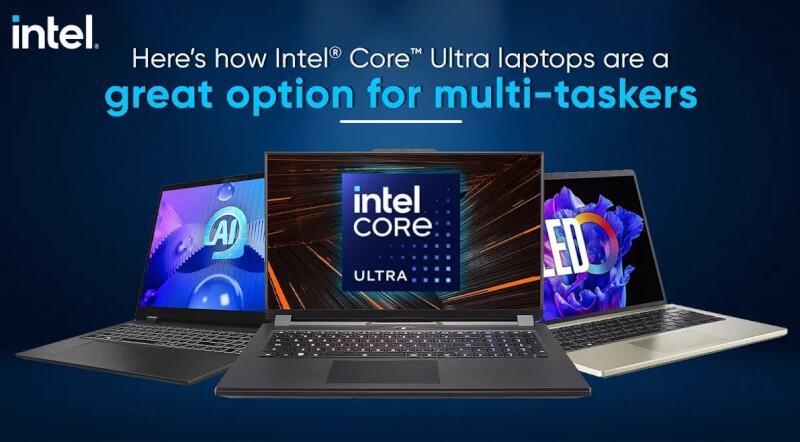Intel confuses customers with upcoming laptop chips

Differentiating between Intel's latest chips may soon become even more confusing. A reliable leaker known as Golden Pig Upgrade on Bilibili, a video-sharing platform based in Shanghai, shared what Intel plans to call its next-generation laptop chips (via NotebookCheck). And if this rumor is true, even connoisseurs of Intel's chips will find this new naming confusing.
According to Golden Pig Upgrade, Intel's upcoming 15th Gen Arrow Lake chips will launch with the Core Ultra 200 title, while chips with the non-Ultra Core 200 label will technically be Raptor Lake chips.
When one chip is significantly more powerful than the other, you'd think Intel would give them completely different naming conventions, but this wouldn't be the first time Intel has confused buyers with chip names. Intel launched similarly confusing chips earlier this year, with its Meteor Lake CPUs - Core 7 Processor 150U, Intel Core 5 Processor 120U and Intel Core 3 Processor 100U - but which were actually updated 14th Gen Raptor Lake CPUs.
To avoid confusion, it would make sense for Intel to reserve the Core/Core Ultra naming convention for their newest chips and come up with something else for redesigned older chips. But unless it magically happens before Intel's next chips launch, you'll need to look carefully at which processor a laptop has if you plan to buy an Intel-based laptop in the coming years.
It's not clear how the upcoming 15th Gen Core 200H (Raptor Lake) chips will differ from their 14th Gen predecessors, but they will undoubtedly not be as powerful as the rumored Arrow Lake chips. According to a rumor reported by TechRadar, Arrow Lake processors could get a "25% to 35% performance boost over Meteor Lake" without hyperthreading or LP-E cores."
Latest laptop
-
04 Seplaptop
-
26 Auglaptop
Coming soon: Samsung Galaxy Book 5 Pro 360
-
05 Auglaptop
Razer Blade 18 (2024)
-
05 Jullaptop
AMD Ryzen AI 7 PRO 160 CPU leak
-
27 Junlaptop
The Snapdragon X Plus has serious battery issues
-
24 Junlaptop
Laptop news from MSI at Computex
-
06 Junlaptop
MSI's nyeste Steam Deck-rival med Intel CPU
-
05 Junlaptop
Zotac ready with Steam Deck competitor
Most read laptop
Latest laptop
-
04 Seplaptop
Samsung presents first AI laptop
-
26 Auglaptop
Coming soon: Samsung Galaxy Book 5 Pro 360
-
05 Auglaptop
Razer Blade 18 (2024)
-
05 Jullaptop
AMD Ryzen AI 7 PRO 160 CPU leak
-
27 Junlaptop
The Snapdragon X Plus has serious battery issues
-
24 Junlaptop
Laptop news from MSI at Computex
-
06 Junlaptop
MSI's nyeste Steam Deck-rival med Intel CPU
-
05 Junlaptop
Zotac ready with Steam Deck competitor






